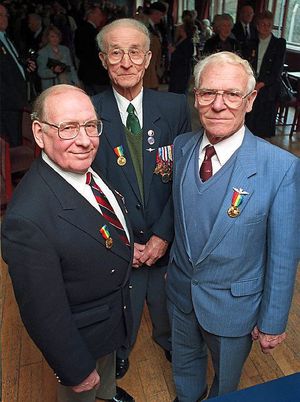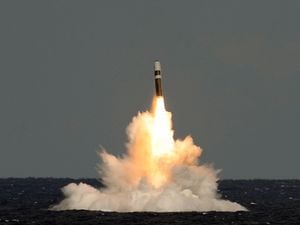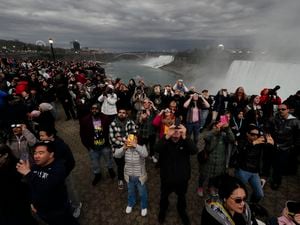Peter Rhodes on memories of D-Day, a trip to Normandy and the nightmares of old soldiers
Read today's column by Peter Rhodes.

TODAY marks the 75th anniversary of D-Day, the Allied invasion of German-occupied France. It was known as Operation Overlord and the historian Andrew Roberts described it a few days ago as "the greatest single service that the English-speaking peoples ever rendered civilisation."
TWENTY-five years ago, on the 50th anniversary in 1994, I did one of the most worthwhile things I have ever done, finding three D-Day veterans to join a coach full of readers for a pilgrimage to the Normandy battlefields.
NO-ONE on that trip will ever forget it. Between them, Reuben Welsh, a tank crewman, George Jones a Commando and Alf "Tug" Wilson, a glider pilot told a modest, almost matter-of-fact account of their part in the greatest amphibious invasion of all time.
ALF praised the endless training that enabled pilots like him to land their massive Horsa gliders stuffed with soldiers and munitions, "on a sixpence" in the fields of Normandy. George broke down in tears as he recalled his fellow Commandos dropping, dead and wounded, on their epic march from the beach to relieve the British airborne lads desperately holding Pegasus Bridge. And Reuben swelled with pride as he recalled how the only German counter-attack of D-Day, by the feared tanks of an SS Panzer regiment, was shot to pieces by his pals of the Staffordshire Yeomanry in a well-planned ambush: "Our thin red line held and they never came back again."
BUT in the aftermath, the victors are sometimes as vulnerable as the vanquished. The 50th anniversary of D-Day became a national celebration, yet the Royal British Legion and other military charities reported a spike in cases of post-traumatic stress. Warriors who had kept themselves sane for half a century were haunted in 1994 by the sounds and images of the anniversary. I dare say the 75th commemorations will have the same grim fallout.
FOR years after the war, admitted Reuben Welsh, he couldn't enjoy a drive in the countryside without seeing every wood as a tank hiding place, every valley as an ambush. George Jones's personal nightmare was the memory of a German officer decapitated by a shell, his hat nearby, his head nowhere to be seen "and not a drop of blood anywhere."
FROM dozens of D-Day interviews over the years, the words that stick with me on today's anniversary were spoken by Reuben Welsh on the final night of our pilgrimage in 1994. After dinner, the conversation among the mainly middle-aged party turned to that favourite target, the youth of today. Useless. What a shower. No respect.
"NOW I think of it," said Reuben, the D-Day tank radio operator," in 1939 my father used to say my generation was rubbish, too. But we didn't do too badly, did we?"





